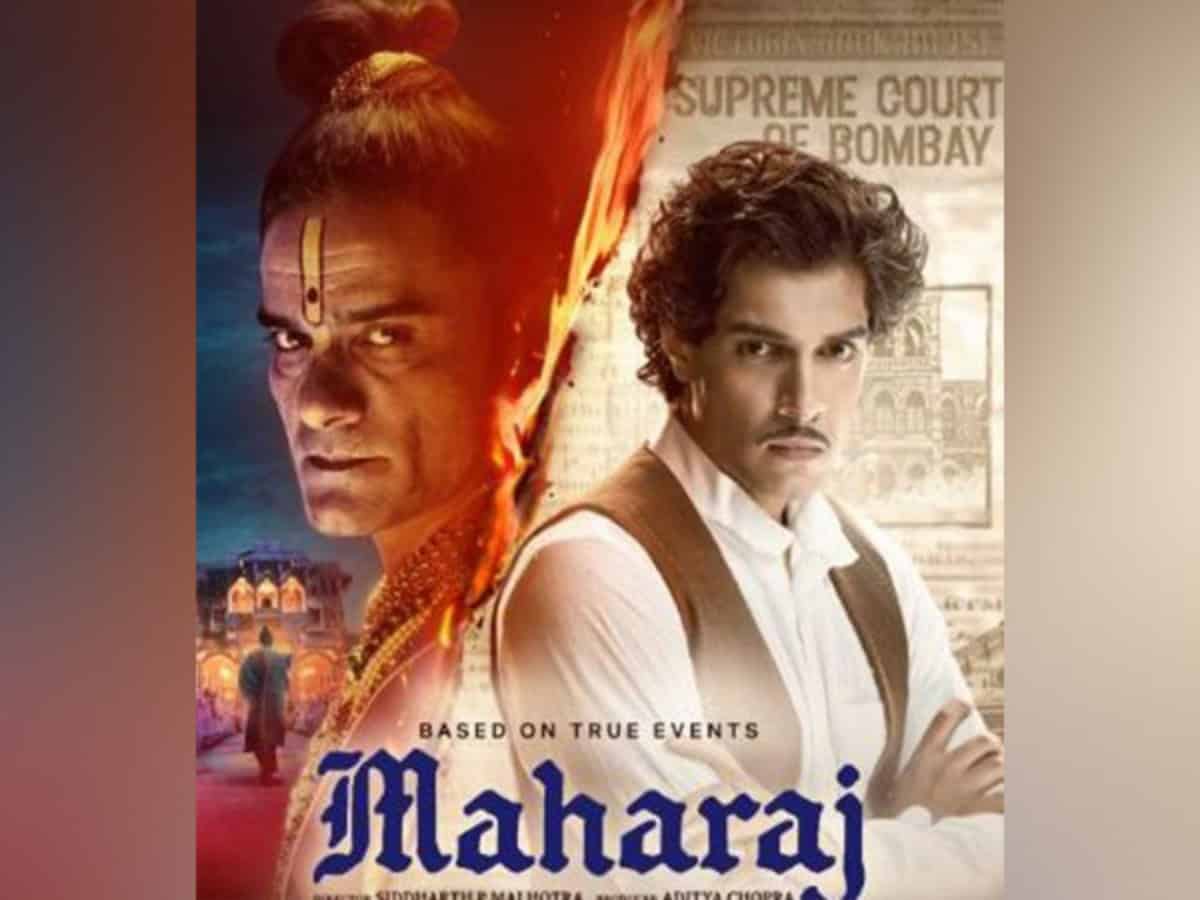
Ahmedabad: The Gujarat High Court on Thursday extended its interim stay to the release of “Maharaj”, the debut film of Bollywood star Aamir Khan’s son Junaid, for one more day.
The film is based on an 1862 libel case involving a Vaishnavite religious leader and social reformer Karsandas Mulji, but some members of the Pushtimarg sect have filed a petition against its release on Netflix, claiming that it hurts religious sentiments.
The petitioners’ lawyer advocate Mihir Joshi on Thursday argued that Article 19(1)(a) of the Constitution, which gives the right to freedom of speech and expression, is not a “license to insult” and the law does not protect publishers (such as OTT platforms) only because their creation is based on true events.
As Joshi wanted to argue further, Justice Sangeeta Vishen extended the stay to the film’s release for one more day, adjourning the hearing to Friday afternoon.
The petitioners claimed that the British-era court which decided the 1862 libel case castigated the Hindu religion and made blasphemous comments against Lord Krishna as well as certain devotional songs and hymns.
During Thursday’s hearing, advocate Joshi said the petitioners had approached the Ministry of Information and Broadcasting, requesting it to take steps to stop the release, but there was no response.
The ministry has the powers to ensure compliance with the code of ethics under the Information Technology Act, he said.
“The rules of 2021 talk about standards to be maintained by a publisher under code of ethics. Netflix is a publisher in this case. I&B Ministry can issue orders to adhere to the code of ethics. If I file a complaint, the ministry can refer it to an inter-departmental committee. Committee can order deletion or modification of content,” said Joshi.
The content of the film is “incendiary” and likely to incite hatred and violence against the Pushtimarg sect, the lawyer claimed.
“This is not M F Hussain’s painting where artistry is involved. They picked something incendiary. Article 19(1)(a) is not a license to insult. Even the Supreme Court had said that even if a movie gets a CBFC certificate, an injunction can be granted. The SC had even said it is up to courts to decide and a certificate is not final,” said Joshi.
If the court, after watching the film, finds there is “no running down of any religion”, he will not argue further, the petitioners’ lawyer added.
As the film is said to be based on a trial, there would be scenes where witnesses would be saying ‘your religion teaches immorality’, advocate Joshi contended, adding that it could not be permitted just because it is based on true events.
“The SC had said that truth is not an answer to defamation,” said the lawyer.
The 1862 libel case arose from an article written by Karsandas Mulji in a Gujarati weekly, alleging that a Vaishnavaite leader had liaisons with his female devotees.
Yash Raj Films (YRF), producer of “Maharaj”, has offered to provide the court pre-release access to the film for deciding whether it hurts the religious sentiments of any community. The judge has not yet decided whether she would watch the film.
